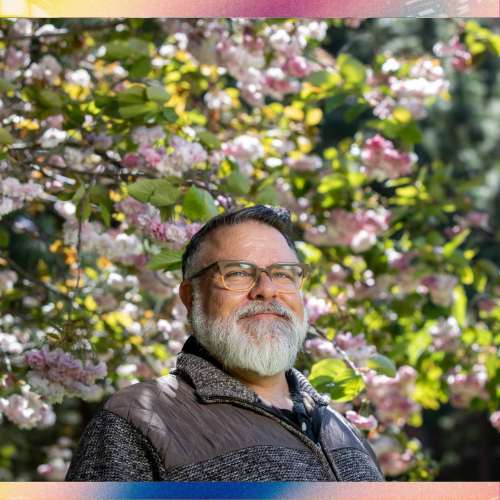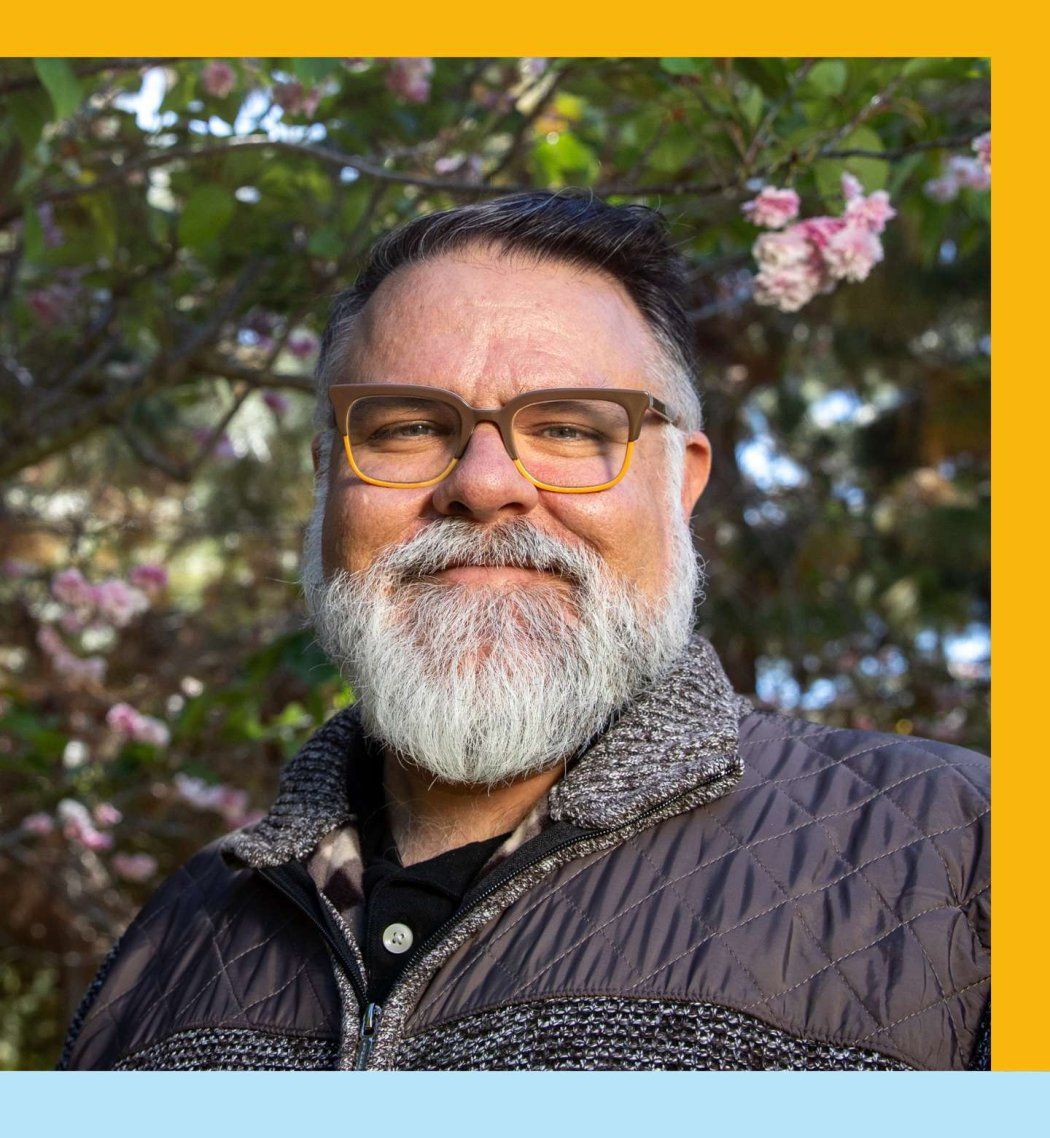This is part of a UC San Francisco series to promote greater awareness and understanding of gender identity and the use of a person’s lived name to foster acceptance, inclusion and belonging. Explore the series
How does the Gender Recognition and Lived Name Policy affect you personally? Or how do you imagine or hope it might affect you?
My gender journey hit a stride during COVID-19’s shelter-in-place.
For the first time in my life – for better or worse – I had the space to reflect upon how I present myself in the world. Up until that point, gender was this thing I inherited with clear boundaries for expression.
I began moving those boundaries to better suit my personal experience.
In 2021, I came out as nonbinary.
This change helped me see my whole self for the first time. I began using my chosen name, which is not only a reflection of my gender, but also my cultures. My family is blended from the U.S. and Mexico, where there is a tradition of using both parents’ surnames. I had professionally used both for over 20 years to engage both heritages, but now with gender it was a combination that helped me see my whole self.
I think a GRLN policy is a huge opportunity to signal empathy to our co-workers.
Being seen and being addressed in a way that aligns with my identity at work is massive. It helps me see myself in the work, which I believe improves my performance.
What’s one thing you would like people to know or understand about you and your experience?
We’re all learning!
I really appreciate when my friends, family and colleagues make an attempt to understand and respect my experience. I know that using the appropriate pronouns or addressing me by my chosen name can be a growth opportunity for some, especially if someone has known me for a long time.
I absolutely have grace for those who make an attempt.
We need to center mutual respect and understanding for one another while basic job protections for LGBTQIA+ folks are on the line at the national level. For instance, when we normalize and model the sharing of pronouns at work, in meetings, on calls or Zooms, it makes it safer for gender nonbinary people like me to come out at work.
To be clear, trans and gender nonbinary people are constantly assessing the safety of our work environments. It can be exhausting! Normalizing the sharing of pronouns takes the onus and stress off of us to start those conversations.
When we don’t make spaces safe to come out, it can have a negative impact on your co-workers and on work cultures.

Join us in honoring Jae Rouse Iñiguez, distinguished recipient of the 2024 Chancellor Award for Leadership in Lesbian, Bisexual, Transgender, Queer, and Intersex Initiatives - Staff.

Join us in honoring Jae Rouse Iñiguez, the distinguished recipient of the 2024 Chancellor Award for Leadership in Lesbian, Bisexual, Transgender, Queer, and Intersex Initiatives - Staff.
What’s something you wish more people did when getting to know you, especially at work?
I’m gender nonbinary, which for me means that I do not identify with masculinities and femininities, but that my experience is somewhere in between. I’m also mixed-race, white, and latiné, and my name is a reflection of my gender and my culture.
I wish more people would ask me how to pronounce my names.
Trust me, I know it can be a tongue twister. But a smile and a little bit of work can go a long way.
As a hiring manager, I feel strongly about recruiting from a diverse pool of applicants at UCSF. This means making sure that different community boards and organizations know we’re recruiting. When we hire from a talent pool that’s representative of the folks we serve, we’re going to maintain a better work culture that’s rich with a variety of perspectives, skills and knowledge.
Cultivating a UCSF culture of belonging where we all can thrive.
Join the conversation at UCSF.
Gender Recognition and Lived Name Policy
UCSF is implementing the UC Presidential Policy on Gender Recognition and Lived Name to ensure that all employees, learners, patients and affiliates are identified by their accurate gender identity and lived name.
Change Your Name and DATA
Faculty, staff, learners, affiliates and alumni should have the opportunity to identify by their accurate gender identity and lived name. Learn how to change or update your name, gender marker and sexual orientation and take training.
BE AN ALLY AND ADVOCATE
The UCSF Lesbian, Gay, Bisexual and Transgender Resource Center has several programming initiatives that promote the inclusivity of our identities, including Pronouns Matter and UCSF Pride Pin Pledge.
